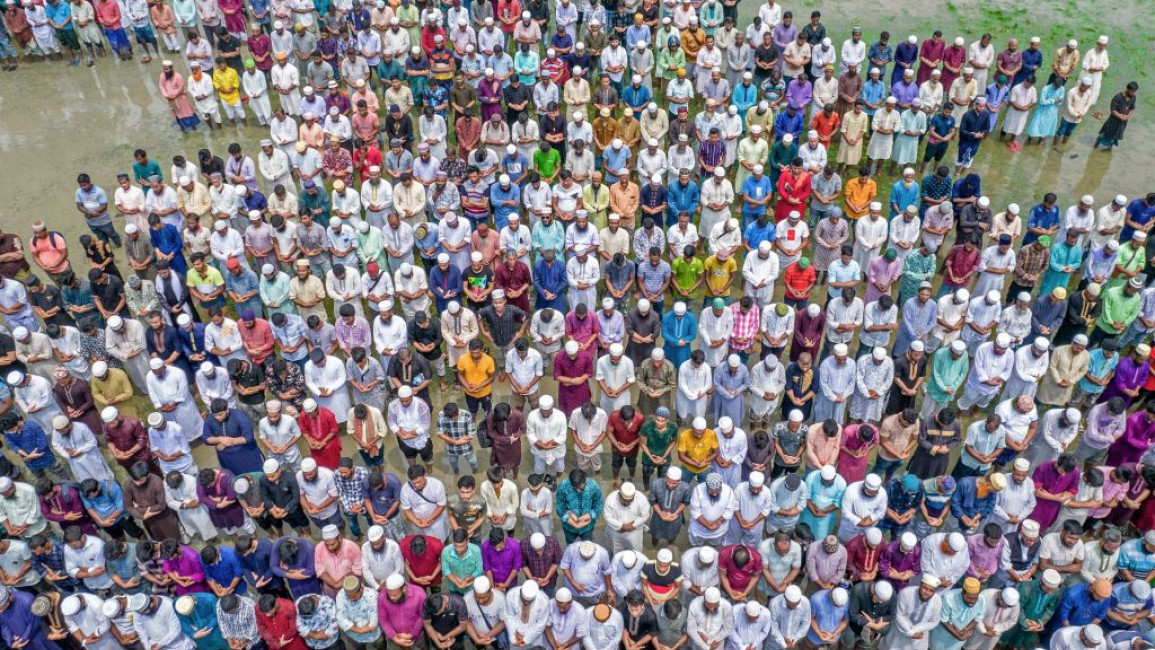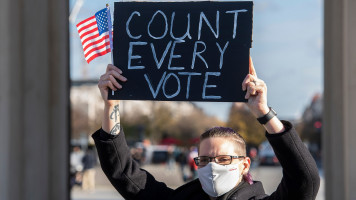Delwar Hossain Sayedee: Bangladesh Islamist leader buried after violent protests
Around 50,000 people attended Tuesday's funeral for an influential Islamist leader in Bangladesh, police said, after news of his death while he was in prison for war crimes prompted violent anti-government protests.
Delwar Hossain Sayedee, 83, was sentenced to death in 2013 for rape, murder and the persecution of Hindu Bangladeshis during the country's independence war decades earlier.
He died on Monday after suffering a heart attack in a prison outside Dhaka, prompting protests in the capital that turned violent when police moved in to disperse them.
Heavy police security guarded a funeral prayer at Sayedee's hometown in coastal Pirojpur district where a huge crowd gathered to watch his body be laid to rest.
"Some 50,000 people joined the funeral prayer," deputy district police chief Sheikh Mustafizur Rahman told AFP, adding that the burial took place without incident.
But elsewhere in the country, one person was killed during a confrontation between police and a group attempting to hold a memorial ceremony for Sayedee.
"They gathered and wanted to hold a funeral prayer, stoking a clash between them and police," Chakaria duty police officer Md. Selim Mia told AFP.
"One person has died and some more have been injured including our policemen."
Sayedee was vice president of the opposition Jamaat-e-Islami party, an Islamist political group with a huge following despite being banned for much of its history.
The party remains controversial for supporting Bangladesh's continued union with Pakistan during the former country's brutal 1971 liberation war.
Sayedee shot to prominence in the 1980s after he started preaching in some of the Muslim-majority nation's top mosques.
In his heyday, he would draw hundreds of thousands to his speeches, recordings of which were widely distributed.
His conviction a decade ago by a war crimes tribunal – criticised by rights groups for several procedural shortcomings – triggered the deadliest protests in Bangladesh's history, with at least 100 people killed in the clashes that followed.
Jamaat said tens of thousands of its supporters were arrested in a subsequent crackdown, and the party was only this year permitted to stage public demonstrations again.
News of Sayedee's death on Monday night brought thousands of Jamaat supporters to the streets chanting anti-government slogans.
Police dispersed protests with rubber bullets and tear gas before dawn on Tuesday, Dhaka Metropolitan Police spokesman Faruk Hossain told AFP.
The police force said it had rejected an application by Jamaat to hold a post-funeral prayer in the capital.





 Follow the Middle East's top stories in English at The New Arab on Google News
Follow the Middle East's top stories in English at The New Arab on Google News


![Algeciras port [Getty]](/sites/default/files/styles/image_330x185/public/75377010.jpeg?h=327453ef&itok=KfCFUEza)